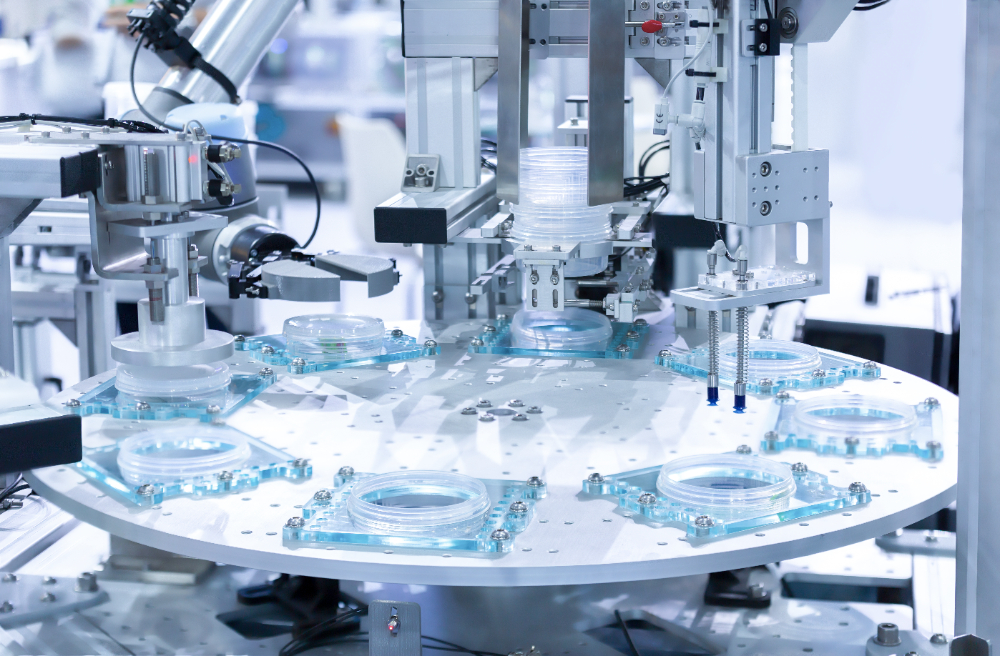In pharmaceutical manufacturing, ensuring that equipment and processes meet stringent standards is critical for compliance, quality, and efficiency. Equipment qualification—comprising Installation Qualification (IQ), Operational Qualification (OQ), and Performance Qualification (PQ)—is a cornerstone of Good Manufacturing Practices (GMP). These processes validate that equipment operates as intended, ensuring product safety and efficacy. This article delves into the differences between IQ, OQ, and PQ, their focus areas, and their importance in the pharmaceutical industry.
What is Installation Qualification (IQ)?
Installation Qualification (IQ) is the first stage of equipment qualification. It ensures that equipment is installed correctly and meets the manufacturer’s specifications and regulatory requirements. IQ lays the foundation for the subsequent qualification phases.
Key Focus Areas
- Verification of Installation: Ensures the equipment is installed as per the manufacturer’s instructions and site requirements.
- Documentation Review: Includes manuals, calibration certificates, and design specifications.
- Utility Connections: Confirms that utilities such as power, water, and air are correctly connected.
- Component Check: Verifies that all parts and accessories are present and in good condition.
- Compliance Assurance: Ensures adherence to GMP guidelines and other relevant standards. Equipment qualification starts here, ensuring the foundation for further stages.
What is Operational Qualification (OQ)?
Operational Qualification (OQ) validates that equipment operates according to predefined parameters under simulated conditions. This phase ensures that the equipment functions as intended before it is used for production.
Key Focus Areas
- Functional Testing: Confirms that all equipment functions perform as expected.
- Parameter Verification: Tests operational ranges such as temperature, speed, and pressure.
- Alarm and Safety Features: Verifies that alarms and safety mechanisms are functional.
- Reproducibility: Ensures consistent performance across multiple test runs.
- Documentation: Records all test results and observations for compliance and future reference. A detailed OQ stage ensures equipment readiness for the critical PQ test.
What is Performance Qualification (PQ)?
Performance Qualification (PQ) assesses the equipment’s performance in actual production conditions. It ensures that the equipment consistently produces products meeting predetermined quality specifications. The PQ test represents the final stage of equipment qualification, confirming its real-world effectiveness.
Key Focus Areas
- Real-World Testing: Uses actual production materials and conditions to test equipment performance.
- Batch Consistency: Validates that the equipment produces uniform batches meeting quality standards.
- Process Integration: Confirms that the equipment integrates seamlessly with other systems and processes.
- Documentation: Includes detailed records of test results, deviations, and corrective actions. Success in the PQ test is a strong indicator of equipment reliability in production.
Comparison of IQ, OQ, and PQ
Definition
- IQ: Verifies proper installation and setup.
- OQ: Confirms operational functionality within specified parameters.
- PQ: Validates performance in real-world production scenarios through the PQ test.
Timing
- IQ: Conducted during the installation phase.
- OQ: Performed after IQ and before production begins.
- PQ: Conducted during initial production or following significant equipment changes.
Focus of Testing
- IQ: Focuses on installation and setup.
- OQ: Focuses on operational parameters and functional testing.
- PQ: Focuses on production performance and quality consistency, validated through comprehensive PQ tests.
Test Materials
- IQ: Uses manuals, calibration tools, and installation checklists.
- OQ: Uses simulated or standard test materials.
- PQ: Uses actual production materials and processes, making the PQ test realistic and practical.
Result Evaluation
- IQ: Ensures compliance with installation requirements.
- OQ: Confirms operational reliability and functionality.
- PQ: Validates consistent product quality under production conditions, with emphasis on successful PQ test outcomes.
Importance of IQ, OQ, and PQ
Importance in the Pharmaceutical Industry
In the highly regulated pharmaceutical sector, equipment qualification ensures compliance with GMP and FDA guidelines. This minimizes risks such as product recalls, regulatory penalties, and compromised patient safety. Each PQ test represents a critical checkpoint in ensuring product safety and consistency.
Key Roles of Each Stage
- IQ: Prevents installation-related issues by ensuring equipment is set up correctly.
- OQ: Identifies operational risks and verifies equipment reliability before production.
- PQ: Ensures equipment consistently meets production quality standards, providing confidence in product safety and efficacy. Success in each PQ test reinforces compliance and quality.
Benefits of Equipment Qualification
- Regulatory Compliance: IQ, OQ, and PQ ensure adherence to global standards, protecting companies from legal or financial penalties.
- Enhanced Efficiency: Well-qualified equipment minimizes downtime and reduces operational inefficiencies.
- Quality Assurance: Ensures end products meet stringent pharmaceutical standards, safeguarding patient health.
- Cost Savings: Early identification of issues during qualification prevents costly rework or production delays.
Common Challenges in IQ, OQ, and PQ
- Documentation Complexity: Maintaining comprehensive and accurate records can be labor-intensive.
- Time Constraints: Tight production schedules may pressure teams to rush through qualification stages.
- Resource Allocation: Ensuring qualified personnel are available for testing and validation requires careful planning.
Best Practices for Successful Qualification
- Early Planning: Incorporate IQ, OQ, and PQ requirements during the design and procurement phases.
- Thorough Training: Equip personnel with the knowledge and skills necessary to conduct qualification activities.
- Regular Audits: Periodically review qualification documentation and processes to ensure ongoing compliance.
Equipment Qualification: Conclusion
In pharmaceutical manufacturing, IQ, OQ, and PQ are integral to ensuring that equipment operates reliably and meets quality standards. By validating installation, operation, and performance through thorough equipment qualification, these processes safeguard product integrity and regulatory compliance. Each stage plays a crucial role in minimizing risks, enhancing efficiency, and ensuring product quality.
To learn more about advanced equipment solutions and qualification processes, visit Canaan’s website or contact us today!
Resources:
Installation Qualification
Operational Qualification (OQ)









